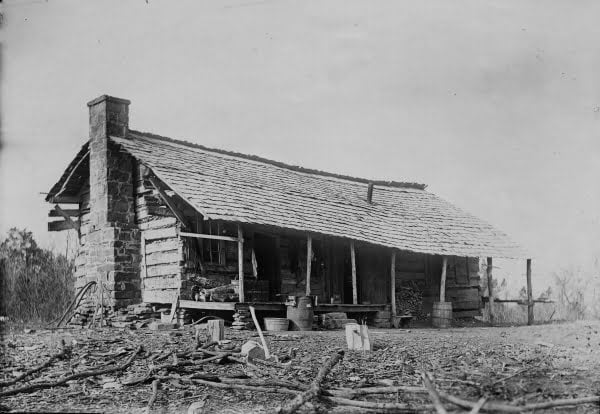This article tells the story of Villiers, a Quapaw Indian, and his wife who sought admission to Fort Coffee school in September. They were robbed on their journey and arrived destitute. Villiers, a professed Christian, wanted to improve his education and become a minister. Despite their unfortunate circumstances, they were unable to stay due to school policies. They were provided with supplies and continued their journey back to their tribe. The author concludes by reflecting on the positive impression Villiers left and the superior qualities of the Quapaw people.

On the fourth day of September two Indians, a man and his wife, came to Fort Coffee, to seek admission into the school. They were, according to their statement, Quapaws, and belonged to a remnant of a once numerous tribe, residing near the south-west corner of Missouri, in the vicinity of a mixed tribe of Senecas and Shawnees. The Quapaws then only numbered a fraction over three hundred souls. The Rev. S. G. Patterson, of the Methodist Episcopal Church, had been laboring with them as a missionary for several years.
The Quapaw’s name was Villiers, and his wife was sister of the chief then in power and the daughter of the old chief. Villiers professed to be a Christian, and a member of the Methodist Episcopal Church. He believed himself called to the work of the ministry and had come to our mission to improve his education and qualify himself for greater usefulness. He stated that, before leaving his tribe, he had procured a letter of recommendation from Colonel Barker, the United States Agent; also, one from Mr. Patterson, the missionary, which was also signed by Rev. D. B. Cumming, the presiding elder of the district. The letters were addressed to Mr. Goode but having been robbed on the way he had lost his papers, they had left their home, traveled across the country to the Neosho and there purchased a canoe, in which to descend the river to its junction with the Arkansas, and so on down to Fort Coffee. They had laid in a supply of provisions, had their blankets, a trunk of clothing, a rifle-gun, a few cooking vessels, and a few dollars of money, Their plan had been to guide the canoe all day, letting it float with the current, and when night came they would fasten their craft, light a fire, prepare their food, and then wrap themselves in their blankets and sleep till morning.
The night before reaching our mission they had tied up and camped on the Cherokee side of the river; but when they waked up in the morning they discovered that their canoe, trunk, provisions, money, and papers were all gone. They were robbed of all their earthly treasures, and being thus left on the bank of the river in utter destitution, they knew not what to do; but finally came on foot, and gave us a history of their troubles. The story was plausible; Villiers was frank and candid, so far as we could discover; and after a pretty thorough examination, we pronounced him worthy of belief.
He also stated that a year before that time he had taken the life of one of his tribe, but that he had done it in self-defense. He disclaimed being a murderer; had not shed the blood of his fellow in malice or with any murderous intent; and when his deed had been examined into by the proper authorities they fully justified him in what he had done. Still he had enemies, and as he did not wish to be drawn into another serious difficulty, he had determined for a time to forsake his people. He was exceedingly anxious to remain at Fort Coffee, proposing that both himself and wife would labor as servants to defray their expenses. But his request could not be granted; we had no power to bestow favors, or to receive any pupils, except those placed under our care by the chiefs and district Trustees.
Villiers was a bright and fine-looking man, about twenty-five years old; his wife, too, was an interesting native, with good features and pleasant manners; she was not unworthy of her royal descent. After remaining a day or two to rest and refresh themselves, we furnished them with as much provisions as they could carry, gave Villiers a little money, and his wife a pair of stout shoes to protect her feet; and on the morning of the sixth they crossed the Arkansas, and set out upon their journey across the Cherokee nation for their own tribe.
We never again saw them, but learned through Mr. Patterson, the Quapaw missionary, that their statements were truthful ; that he was, indeed, an honest, good man, and preparing for the work of the Christian ministry.
I do not remember to have seen any other Quapaw, but if V. was a fair specimen, they must be regarded as a very superior class of Indians.
The Quapaws are believed to be a branch of the Dacotah stock of Indians; they are a remnant, and only one, of the Arkansa tribe.
A word of explanation with regard to that word, so differently pronounced and so imperfectly understood. Arkansas is neither Spanish nor French, but Indian. The original word should be spelled Arkansah. It is very improperly written in the plural form. We have adopted the French pronunciation, which would be correct if the final letter were omitted.
